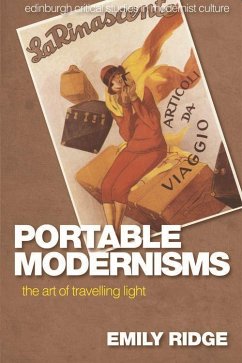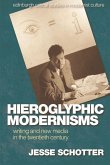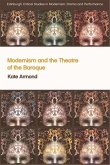'Portable Modernisms is an intellectually agile and absorbing account of the motif of luggage in the literature of the early twentieth century, from the emancipatory promises of modernist mobility to the harrowing dislocations and dispossessions of the 1930s. This is a study of small light things that is itself satisfyingly substantial.' Marina MacKay, University of Oxford A wide-ranging study of the rise of a new culture of portability and its impact on modernist approaches to fiction Luggage is an overlooked detail in the stock sketch of the expatriated modernist writer from the valise-fashioned desks of both James Joyce and Vladimir Nabokov to the lost manuscript-laden cases of Ernest Hemingway and Walter Benjamin. While the trope of modernist exile has long been spotlighted, little attention has been given to the material meaning of this condition. What things and objects do modernism's exiles and émigrés carry with them and how does the act of carriage enter into the modernist picture more broadly? What are the implications and historical resonances of a portable outlook, particularly from the angles of gender, wartime conflict and character conception? Above all, how far does such an outlook impact upon artistic vision? Portability represents the simultaneous transportation and repudiation of domesticity and the home, those key frames of reference in the nineteenth-century novel. This book examines the multifarious ways in which the emergence of a modern culture of portability prompts a radical, if often problematic, departure from Victorian architectural conceptions of fiction towards more movable understandings of form and character. Emily Ridge is an Assistant Professor of English Literature in the Department of Literature and Cultural Studies at the Education University of Hong Kong. Cover image: An elegant mrs. sat over a suitcase advertises a travelling kit series, Milan, 1925, Marcello Dudovich © akg-images / Fototeca Gilardi Cover design: [EUP logo] edinburghuniversitypress.com ISBN 978-1-4744-1959-8 Barcode








